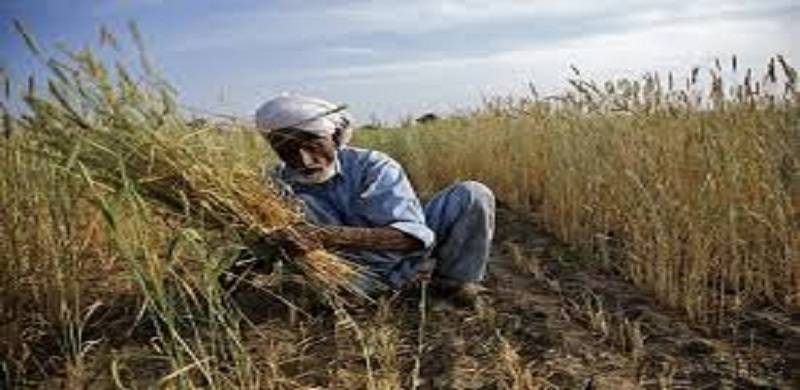
Agricultural economy of` Pakistan is facing bumpy track since the current government came into power in 2018. Poor governance, climate change impact, lack of modern technologies, small land holdings and lack of access to formal financial sector have squeezed the agriculture sector. Now another threat is approaching, i.e. Coronavirus in Pakistan.
If the COVID 19 interrupts our economy and operations, food security will be endangered.
In the recent years, global epidemics like Ebola, SARS, MERS created a negative impact on food security specially for the vulnerable communities. Now that the world population – from developing-to-developed nations – is facing the deadly pandemic called COVID 19.
Currently, the farmers are due to harvest three major crops in Pakistan. First, wheat, which is a staple food grain comprising 60 percent of daily diet of a Pakistani citizen. Wheat crop is at the maturity stage now and shall be landing in the market after few weeks. The yields have been declining and there were recent shortages prompting the government to approve the import of 300,000 tons a few months ago. It is also a fact that the recent pre-monsoon spell coupled with hailstorms and heavy winds, affected the targeted produce at the end of the season.
Second, potatoes are still growing in the fields and will face late harvesting due to the rains and the quality damage. Lastly, corn is still at an early stage and will require higher nutrition and chemicals to control the diseases within the next 90 days.
As the government is preparing for possible lockdown across the country, the circumstance can become difficult for citizens especially the urban daily wager workers and the rural poor. The farming community and the farm workers will also be affected. In the case of wheat, after the lockdown, the intercity or inter-district travel may be halted, causing unavailability of harvesting machines and reapers. Further, the availability of chemicals and inputs for the existing crops might be affected which will increase the vulnerability to disease and may reduce farm incomes; and create problems for sowing the next rice crop.
Harvesting the existing wheat grains is vital to ensure the food security in the country during these difficult times. Delay in sowing the rice crop will also affect the total supplies. Almost half of the potato crop is harvested and had enjoyed the good price in the market before the coronavirus outbreak but now the situation is changing with limited buyers in the market to export due to the sealed borders for the potential markets.
Unavailability of inputs due to the logistical bans and provision of the formal loans to run the farm operations including electricity bills and labor wages would surely disturb the farm economy. It might lead to low yields of the following corn crop which is a major grain for poultry feed and as fodder for the dairy industry.
This situation will affect the production of milk, meat and vegetables for daily usage. Food processing may also be disturbed due to unavailability of manpower and logistical blockade which will cause another cut in the farm income.
At the local level, during the lockdown, the administration will regulate market operations for public safety. if the grain markets and vegetables markets are closed, where will the farmer’s produce go? And if only the vegetable market is open and vendors are barred form opening their shops and only allowed to sell on carts avoiding, who will buy the produce auctioned in the market? Overall loss will hurt the farmers, who are already dealing with higher production cost due to expensive inputs and informal credit options.
Government's role is even more crucial now. It needs to take food and agriculture matters seriously. Enabling policies are needed with financial support, tax and loan waiving for the farming communities to ensure the supply of food and dairy products.
Most importantly, financial protection of the vulnerable and poor farm workers will need to be arranged in the difficult times of fighting the pandemic. Most of the farmers use mobile phones. The government should discuss with the cellular companies to help in providing low cost internet during the pandemic so they can stay informed about the situation and educating them on why it is necessary to cooperate with the government to handle the looming crisis.
